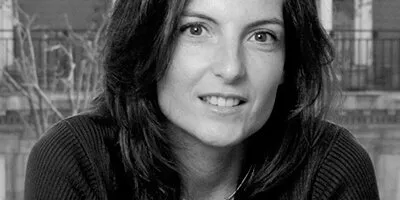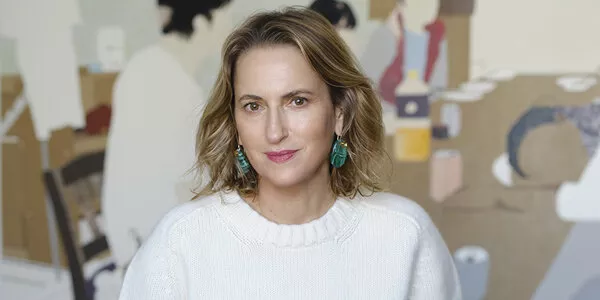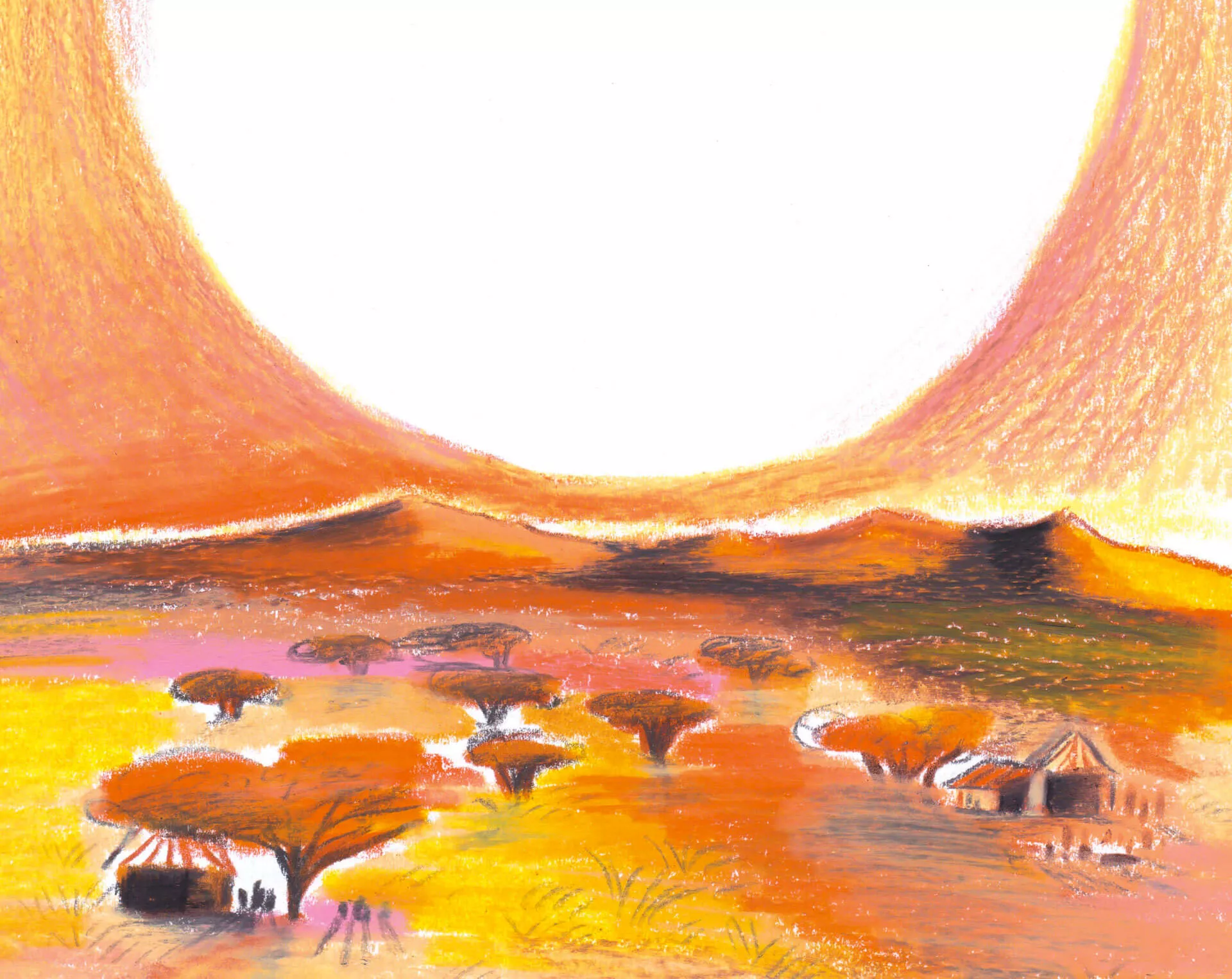
The sun is also rising on African energy
Contributors
Myriam Fournier Kacimin
Founder and CEO
of Sungy
Vincent Kientz
Founding partner
Enea Consulting
Arnaud Rouget
Africa programme manager
at the International Energy Agency (IEA)
Today, in 2022, in sub-Saharan Africa, nearly 600 million people still do not have access to electricity. Despite the progress made in terms of electrification, achieving the 7th UN Sustainable Development Goal remains a challenge1. And “with the Covid crisis, the number of people without access to electricity has increased by 4% whereas it had been decreasing steadily since 2013”, outlines Arnaud Rouget, Africa programme manager at the International Energy Agency (IEA).
In addition, another major issue arises daily: limited access to clean, sustainable cooking methods. “It is very urgent because nearly 80% of African households do not benefit from electricity and use wood collected in the forest or charcoal”, says Harriet Okwi, energy access manager at Enea Consulting. This traditional use of biomass leads to indoor air pollution, which is the cause of 500,000 premature deaths per year according to the World Health Organization (WHO) and contributes to ongoing environmental degradation.
Demographic factors also have to be taken into account: according to the UN, the population of the sub-Saharan region will almost double by 2050, reaching 2.1 billion with 60% of it concentrated in cities and urban conglomerations. This strong demographic growth and the economic transformation of the continent will lead to a considerable increase in the demand for energy, which will grow twice as fast as the world average by 2040 according to the IEA.
Economic development hampered
At a time of accelerating global warming, we need to quantify how decisive the response to Africa’s energy needs will be for the prosperity as well as the sustainability of the global energy system. “It is imperative that the emergence of new energy production capacity is encouraged to enable development. This remains the number one issue in African countries, which have contributed little to greenhouse gas emissions but which will be the first victims of the effects of climate change”, observes Vincent Kientz, a partner at Enea Consulting. We must indeed “put things into perspective”, underlines Damilola Ogunbiyi, special representative of the United Nations Secretary-General for Sustainable Energy for All, who recalls that the installed electricity production capacity of sub-Saharan Africa, excluding South Africa, is only 81 gigawatts (130Gw with South Africa), which is comparable to that of Germany, yet this capacity has to serve more than a billion people!2
The lack of access to modern energy services, particularly electricity, but also their unreliability when existing at all, hinders the economic development of the continent and its ambitions for industrialisation. As Hugo Le Picard, researcher at the Energy and Climate Center of the French Institute for International Relations (IFRI) points out, the weakness of the sub-Saharan electricity network infrastructure has a considerable, negative effect on its associated economies, representing on average a cost of between 1 to 5% of the national GDP, depending on the country. “About 80% of African companies suffer from frequent outages and point to the poor quality of a service for which they are forced to pay dearly”, specifies Myriam Fournier Kacimi, founding president of Sungy3, a company committed to developing solar photovoltaic energy in Africa. And Thomas Chevillotte, Africa manager of Enea Consulting, enumerates the difficulties facing these transmission and distribution networks: obsolescence, under-investment in maintenance, technical losses, and theft due to illegal connections.
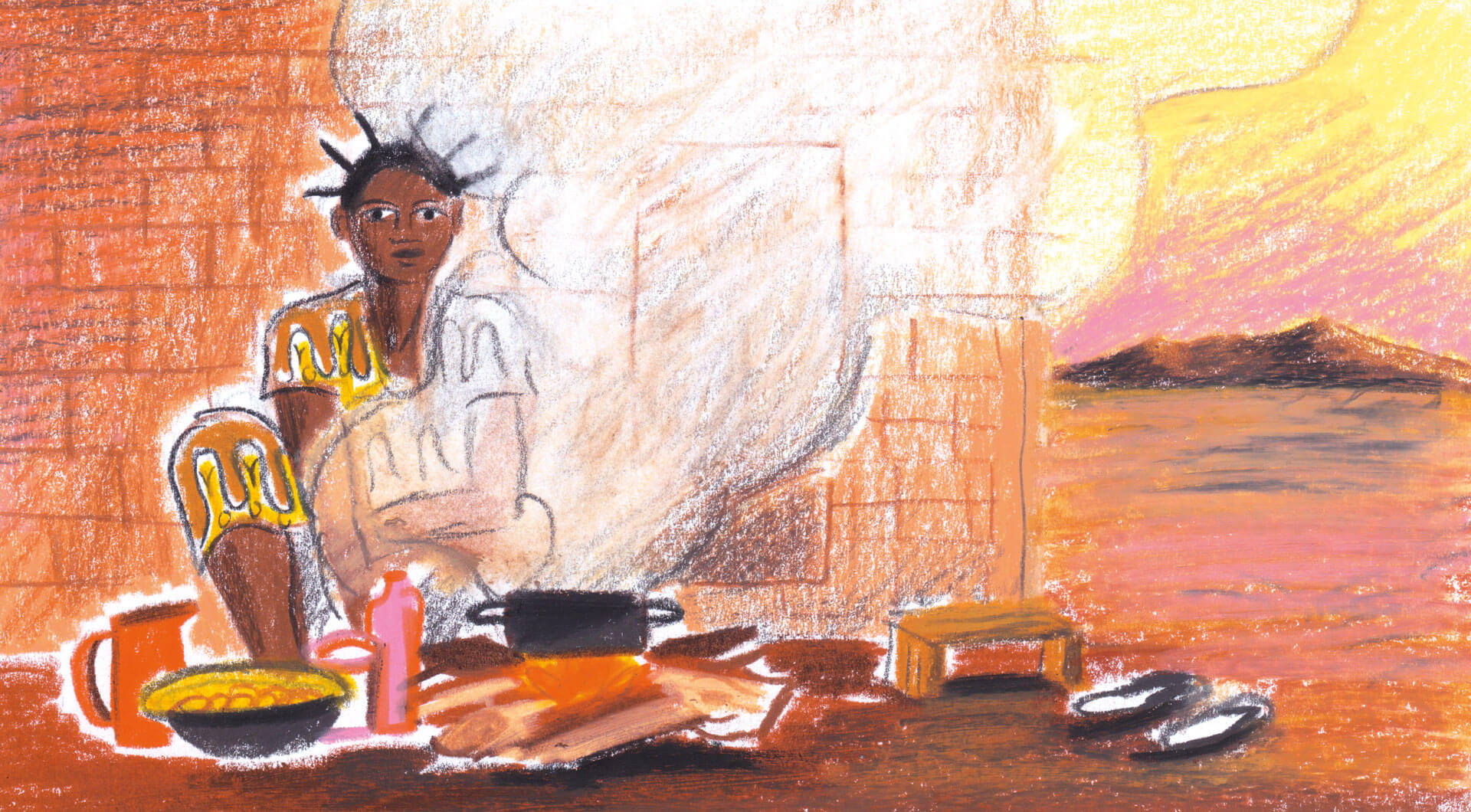
Accelerating investments
However, real progress has been made in terms of access to electricity in countries such as Kenya, Rwanda, Ethiopia, Ghana, Senegal and Côte d’Ivoire. West Africa has thus gone from an electrification level of 34% in 2000 to 53% in 2019. And, like in other regions of Africa, it is mobilising to achieve a regional electricity market with the West Africa Power Pool (WAPP). Nine cross-border interconnections have been completed and the goal is to interconnect all 14 countries in the region by 2024. This regional integration is essential for expanding energy markets, guaranteeing economies of scale and profitability of investments in this sector. And, as Ousmane Diagana, vice-president of the World Bank for West and Central Africa hopes, “the pooling of a diverse range of green resources, for example hydroelectricity in Guinea or Liberia or even solar in the Sahel, will lead to a more resilient system”4. In its new Africa Energy Outlook report5, the IEA believes that achieving universal access to both electricity and clean cooking by 2030 is possible, even if its path is uncertain.
It is imperative to encourage the emergence of new energy production capacity
In order to realise this scenario, investments in clean energy will need to be multiplied by a factor of five by 2030 compared to their current levels. Unachievable? This growth represents less than 5% of the clean energy investments needed globally under the “zero emissions” scenario, according to the IEA. “We need to pick up the pace, argues Damilola Ogunbiyi, that’s why we need money from philanthropy, development institutions, financial institutions, governments, all coming together to look for creative solutions that will ensure that no one will be left behind when it comes to access to energy”.
3 questions for Georges Wega
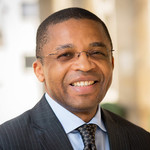
Deputy head of International Banking Networks,
Africa, Mediterranean Basin and Overseas Regions.
What are the main reasons for the lack of access to energy in sub-Saharan Africa?
Despite some positive developments in recent years, access to energy continues to be hampered by the lack of energy production infrastructure and the limited performance of existing transport and distribution networks. The obsolescence of some of these networks makes it virtually impossible to offer a quality service that meets local demand. The somewhat limited production capacities of national electricity systems increase the cost of electricity production, which in some countries is two to three times higher than the world average. It is imperative, therefore, for states to develop low-cost solutions, adapted to the relative incomes of their populations. Another issue is the lack of private financing and budget support in the sector to support the sometimes colossal investments required. Some governments are just not sufficiently equipped to undertake the complex tenders necessary for this type of investment. Finally, several countries have regulatory and legal frameworks that are unsatisfactory in the eyes of investors, which do not promote competition and limit recourse to private actors, resulting in a relatively undiversified supply of energy and a monopoly of public companies.
What are the main challenges in terms of financing and investment to promoting the continent’s continued energy development?
States must develop their capacity to attract private investors: the diversification of funding sources will reduce costs across the entire chain. They need to establish clear energy policies, structure the sector and define standardised regulatory and legal frameworks, recognising the role of the private sector in particular. We have already noted several good examples, with certain states having adopted laws on Public-Private Partnerships. In addition, it is important in the structuring of investment cases, to establish good financing mechanisms and to propose innovative pricing systems that will reduce costs for consumers and mitigate the financial risks borne by investors.
What innovative financing solutions are being looked at and what role does Societe Generale play in this?
Innovative financing solutions in this sector make up one of the four pillars of the “Grow with Africa” initiative that we launched in 2018. It is necessary that multi-source and multi-currency financing solutions are favoured, with long maturities, for projects with a high energy impact and which have to integrate specific environmental constraints. In particular, these solutions will make it possible to offset the high cost of investments associated with the implementation of renewable energy technologies while integrating the required debt constraints of individual states. The key point for this type of financing is to bring together the right partners: local/regional financial actors, international financial institutions and development finance institutions. Societe Generale has created platforms in Abidjan, Casablanca and Algiers dedicated to structured financing for major innovative projects in the energy sector. These include the production, operation and maintenance of solar power plants in Madagascar (GreenYellow), Senegal (Total Eren), and even the Biovéa project in Côte d’Ivoire, which is devoted to the creation of a biomass thermal power plant (using palm tree residues). Additionally in Côte d’Ivoire, Societe Generale is also financing the low-cost marketing of individual solar power kits for domestic use, thus supporting energy inclusion through the use of renewable production sources.
The potential of renewable energies
Thanks to its enormous potential in renewable energies (solar, wind, hydro) and technological progress, it is possible Africa could follow a low carbon development model, while also considering the available opportunities on a case-by-case basis due to the diversity of its 54 countries. Positive signals are emerging. “South Africa’s commitment to leading a just transition to a low-carbon economy inspired the whole world in Glasgow during COP 26”, writes Rémy Rioux, Director General of the French Development Agency (AFD)6. France, Germany, the United Kingdom and the European Union have pledged to help South Africa phase out the use of coal for its electricity production.
For its part, China announced that it would no longer finance new coal-fired power plants abroad, during the United Nations General Assembly in September 2021. This decision could affect several African countries, such as Malawi, Kenya, Zambia, Botswana and Zimbabwe, for which the construction of such power plants is one of the solutions envisaged to reduce the deficit in energy access. For now, coal, natural gas and oil together represent about 70% of total electricity production in Africa. Natural gas, being less polluting, is at “a turning point”7. A series of major gas discoveries have recently taken place8, so for many African leaders, gas represents a trump card in the production of electricity. “Countries like Senegal or Côte d’Ivoire either exploit this resource directly or are going to create gas-fired power stations”, observes Jean-Pierre Favennec, president of the Association for the Development of Energy in Africa (ADEA), responding in particular to the challenge of the industrialisation of African countries which requires a stable energy supply.
Renewable energy can go a long way in helping African countries overcome their structural dependencies on fossil fuels, as highlighted in the recent report by the International Renewable Energy Agency (Irena) and the African Development Bank (AfDB)9. But they attract too little funding. Of the $2.8 billion invested in renewables worldwide between 2000 and 2020, only 2% went to Africa and despite its enormous potential in this area, the continent only represents 3% of the world’s installed renewable electricity generation capacity. “Strong political commitment, a fair and equitable energy transition framework and massive investments are necessary”, underlined Kevin Kariuki, vice-president of the African Development Bank (AfDB), in charge of electricity, energy, climate and green growth, when the report was presented in January 2022. The report argues for an African “Green New Deal” that could boost GDP by 6.4% and create 26 million jobs by 2050.
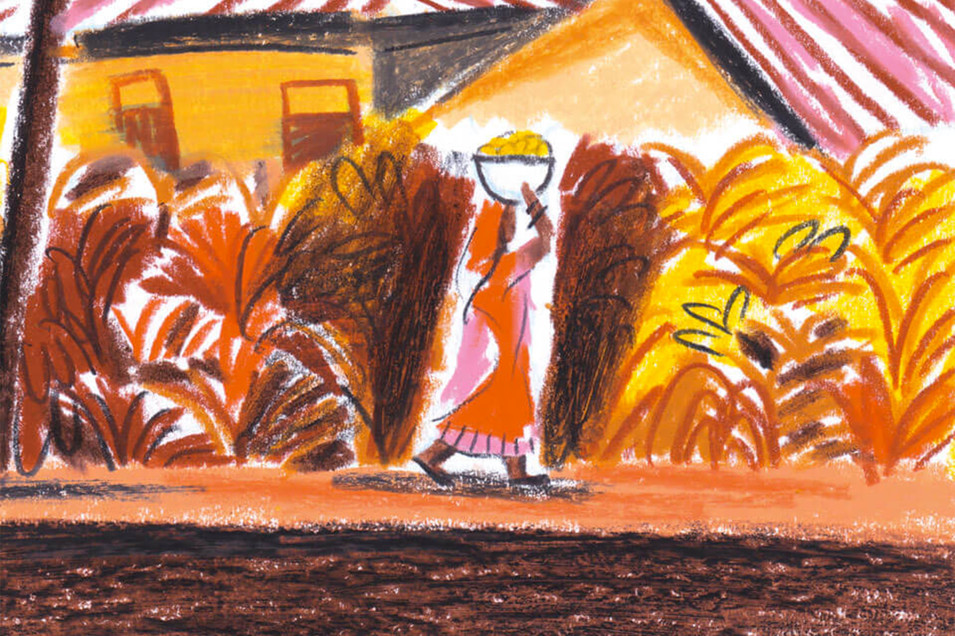
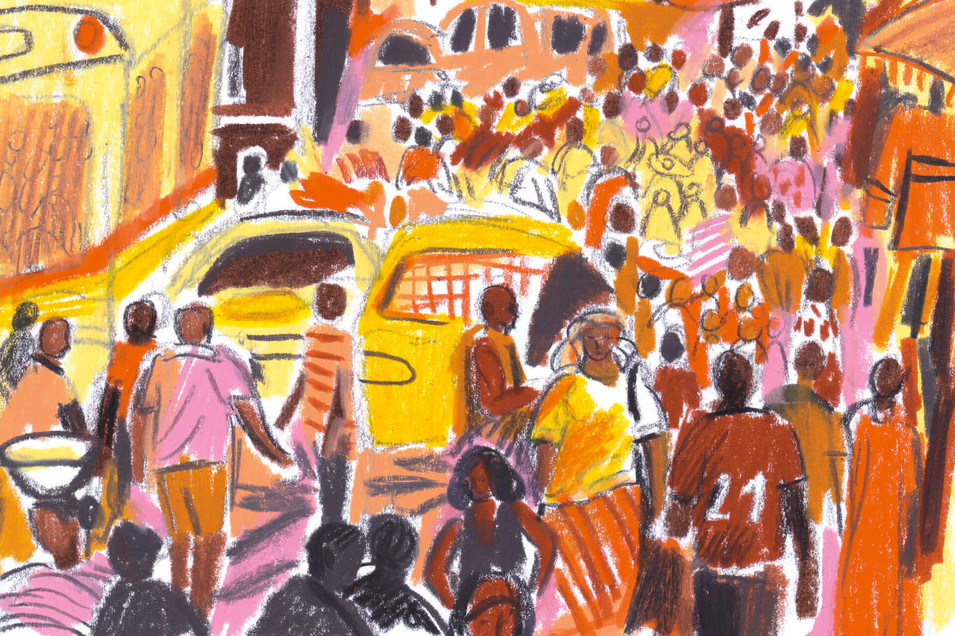
The pooling of a diverse range of green resources will lead to a more resilient system.
The rise of decentralised solar
On a continent with 40% of the world’s solar resources, the question of the rate of expansion of solar energy is central. Today, Africa exploits less than 0.01% of its theoretical potential, and solar represents only 2% of installed electricity production capacity in sub-Saharan Africa (6% in South Africa)10. As Hugo Le Picard observes, “Centralised solar capacities (power plants) are only being deployed gradually because on the one hand, the risks are high for private investors due to the poor financial health of electricity utility companies (the utilities), and on the other hand, the absorption capacity of the networks is low”. Weak infrastructure is an obstacle to the large-scale introduction of all renewable energies. In Kenya, for example, the boom in geothermal energy, which already accounts for more than 50% of the energy mix, is coming up against transmission bottle-necks in the electricity network.
In contrast, the market for decentralised (off-grid)11 solar systems is growing rapidly, which does not surprise Myriam Fournier Kacimi. “It’s the simplest, fastest and cheapest solution to implement”, she explains. And it is also a vector of innovation. Sungy has thus developed an “AC/DC Coupling” technique between the solar panel system and the network, which guarantees energy security, a real asset for industries and businesses that need electrical continuity. These are innovations such as the Pay-As-You-Go system12, linked to the strong development of mobile money, or the intelligent management tools for mini-grids, which have led to the rapid deployment of decentralised solar power, particularly in East Africa. The continent is now the largest market for decentralised solar systems in the world with 3.8 million units sold in 201813. “The progressive decentralisation of electrical systems is underway”, assures Hugo Le Picard in a recent study, which shows that decentralised solar energy, initially developed in rural areas, is experiencing rapid growth in African cities14.
At a time of energy transition, the African experience of renewable energies and the systems created for access to electricity will be inspiring for other regions of the world, including in the most developed countries. Myriam Fournier Kacimi is convinced of this: “The solutions we have developed in Africa now enable us to penetrate the French and European markets. They give us a head start!”
1. The 7th SDG (Sustainable Development Goal) of the UN Agenda 2030 is aiming, among other things, to ensure “access for all to reliable and modern energy supply services at an a ordable cost” by 2030.
2. Interview with Damilola Ogunbiyi published in the UN publication, Africa Renewal, 15/07/2021.
3. www.sungy.co
4. World Bank article “Betting on the power of energy to make Africa shine”, 22/07/2021.
5. At the time of writing, this report has not yet been published, but its broad outlines have been presented by the director of the AIE, Fatih Birol, during a public conference.
6. “The African Economy 2022”, French Development Agency, Coll. Economics, La Découverte, February 2022.
7. According to the IEA in its Africa Energy Outlook 2019 report..
8. Discoveries in Africa represent more than 40% of global gas discoveries between 2011 and 2018 (source: IEA, 2019).
9. Report “Renewable Energy Market Analysis: : Africa and its regions”, IRENA & AfDB, 2022.
10. IRENA, Renewable Energy Statistics, 2021.
11. Learn more about the di erent definitions of decentralised solar systems: www.gogla.org
12. The company rents consumers a solar kit (for charging phones, powering lighting systems, radios, televisions, etc.) and they choose a level of energy service that they pay for through their mobile phones.
13. Gogla, 2020 O -Grid Solar Market Trends Report, March 2020.
14. Hugo Le Picard and Matthieu Toulemont, “The decentralized solar power taking over African cities. An original analysis of satellite analysis and Deep Learning”, Briefings de l’Ifri, Ifri, 18 January 2022.
Find out more

The report and the book
Renewable Energy Market Analysis, Africa and its Regions
International Renewable Energy Agency (IRENA) & African Development Bank (AfDB), 2022.
The African Economy 2022,
French Development Agency, Coll. Economics, La Découverte, February 2022.
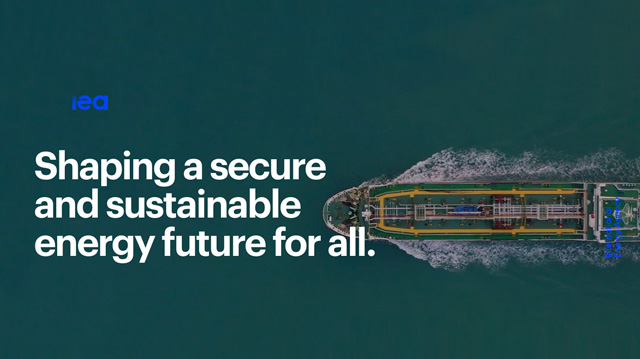
The site
International Energy Agency (IEA)
www.iea.org
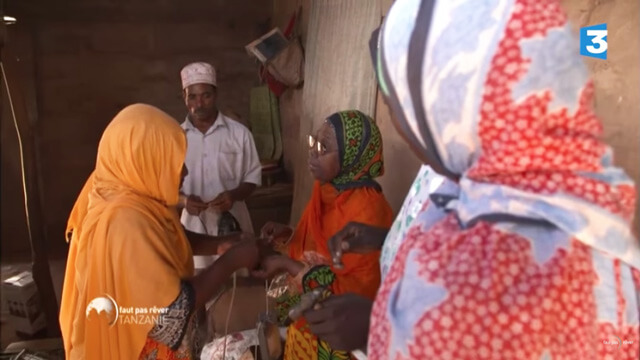
The video and radio report
10 ongoing renewable energy projects in Africa, The New Africa Channel, 11/02/2022
See the video
Kenya, leader in green energy in Africa, RFI, 28/02/2022
Listen the radio report

Illustrations
Beya Rebaï
Born in 1995, Beya Rebaï creates drawings with a limited range of colours that are carefully chosen.
Her sketchpad goes everywhere with her - in her neighbourhood or on her travels miles away.

Text
Catherine Véglio
Editorial adviser, journalist, novelist,
Catherine Véglio explores the fields of economy,
innovation, science, technology and their relationships to society.



